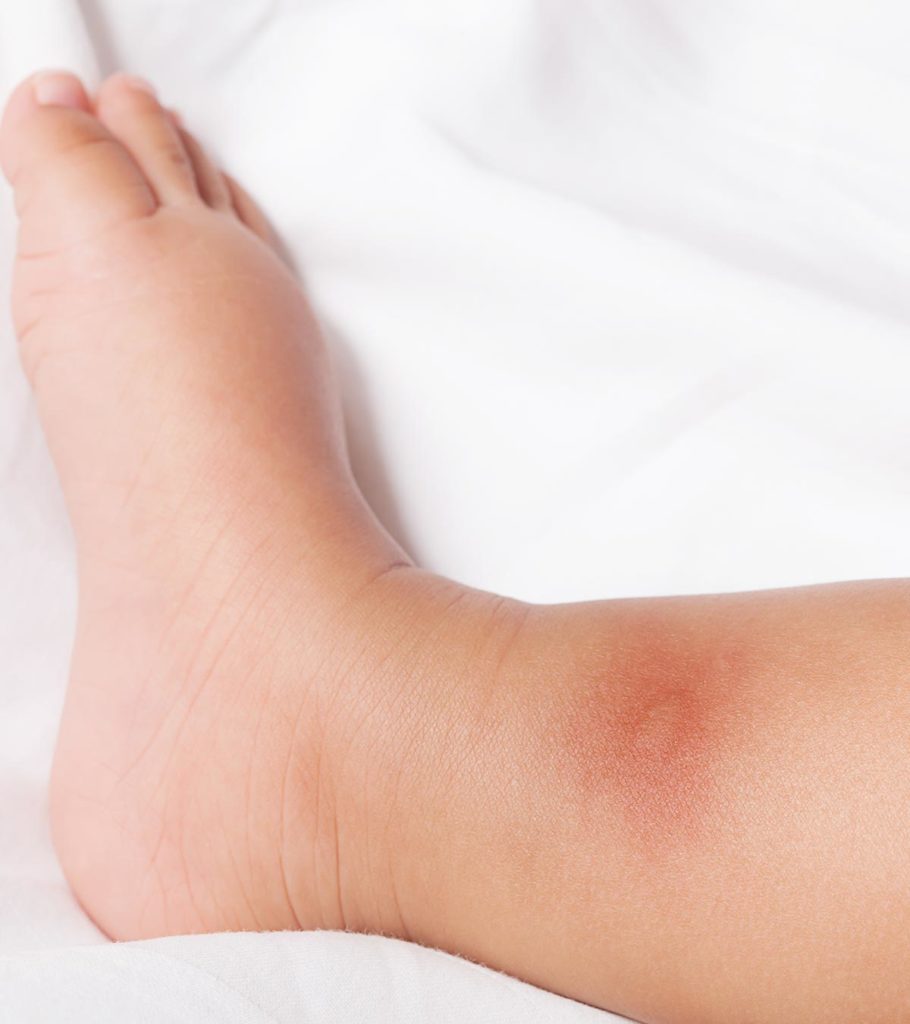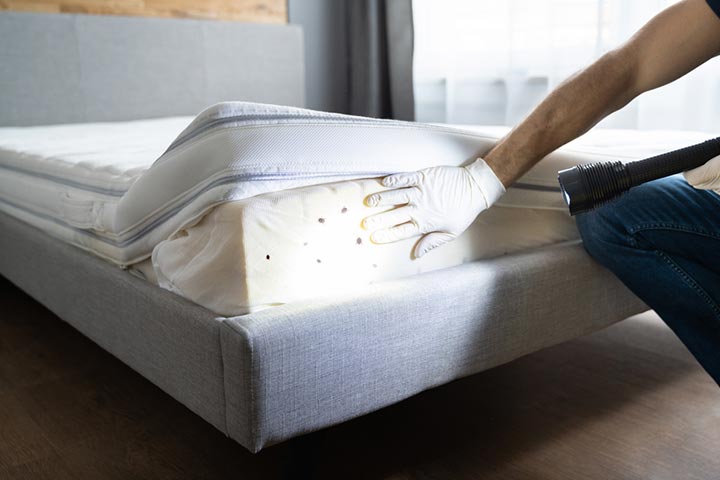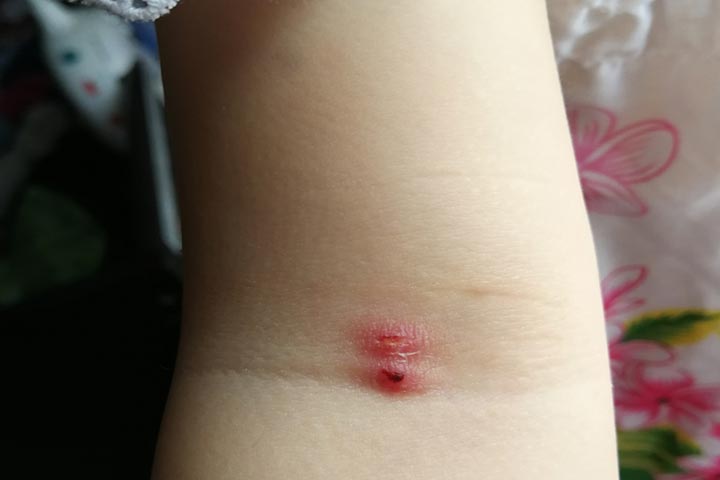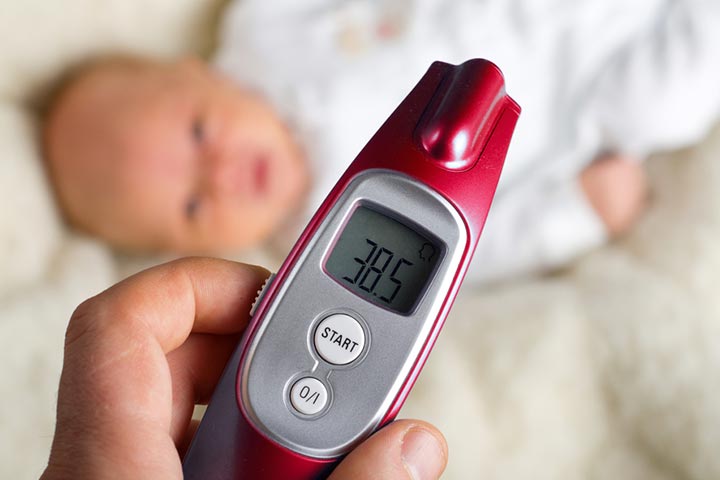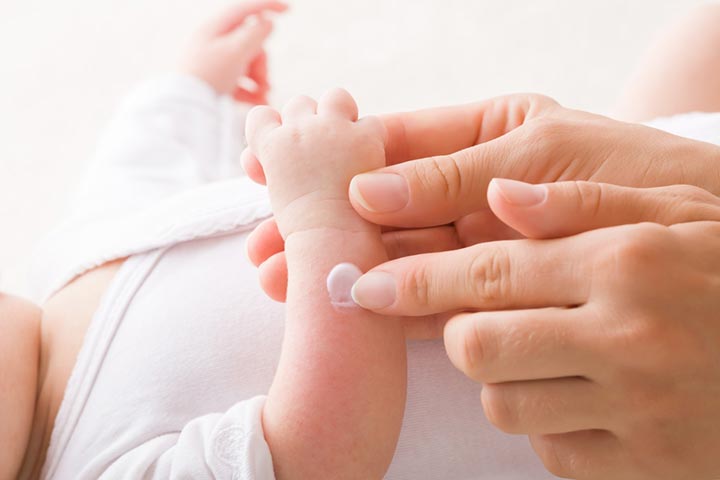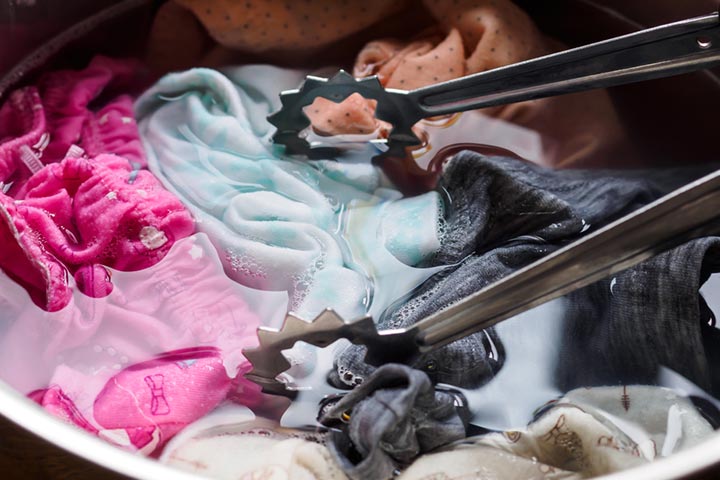Bedbugs, the tiny nocturnal parasites, are typically found in the narrow crevices of rooms or objects such as tables, beds, and windows. Do not be alarmed if you happen to notice bedbug bites in babies. They create more of an annoyance than health problems. The bites appear in red clusters and are mostly treatable with topical application of ointments. Although harmless, the continuous itching and scratching may lead to an infection.
Read on to know about baby bedbug bites, including their treatment and steps to prevent them.
What Are Bedbugs?
Bedbugs (Cimex lectularius) are small, flat, nocturnal parasites that survive on human blood. Bedbug infestation is common in places like hotels, shelters, dorm rooms and public transport vehicles. Bedbugs hide in mattresses and other dry and warm places such as dressers, wall crevices, bed frames, rugs, and window casings (1). After a blood meal, the bedbugs don’t stay on the skin but instead will hide in the aforementioned locations which allows them to be transported and spread to new locations.
Do Bedbug Bites On Babies Cause Health Risks?
Bedbug bites do not require medical attention as they are mostly painless. However, these nasty bites may cause itchiness, and scratching them can lead to secondary infections. The bedbug bites usually appear in clusters or a line formation and hence are distinguishable from mosquito bites. If you notice red marks in clusters on your baby’s delicate skin, it is time for inspecting his bedding for any bug infestation (2).
Bedbug bite reactions may be different for every baby. Some may not feel any pain at all while others may suffer from skin irritation, mild to severe itching and even allergic reactions such as a rash. The severity of your baby’s reaction to bedbug bites may determine the course of treatment he requires (1).
Bedbugs do not spread diseases, so their presence is not a health hazard but more of a nuisance. Babies may scratch the affected area with their fingernails and develop infections or may cry incessantly due to discomfort caused by the bites. Babies may also suffer from a loss of sleep and may even become irritable due to an infestation of bedbugs (1). A severe case of bedbug bites may result in scarring to the baby’s delicate skin. Do seek immediate medical help if your baby suffers from the following symptoms:(3)
- If they develop any redness, abscess or swelling in the affected area.
- If your baby runs a fever after suffering from bedbug bites.
- If they suffer from any breathing difficulty due to an allergic reaction caused by the bug bites.
How To Treat Bed Bug Bites On Baby’s Skin?
Consult your baby’s doctor if you notice bed bug bites on baby’s skin. The pediatrician may prescribe a mild antiseptic lotion for topical application to provide relief to your baby. Corticosteroid ointments and creams for itching are popular medications for treating bedbug bites. If the bug bites are severe, the doctor may also prescribe oral corticosteroids. If your baby develops a bacterial infection due to scratching the bug bites, a course of antibiotics may be needed (4).
Tips To Prevent Bedbugs
Bedbugs are about the size of an apple seed, and their eggs are even smaller, so it is difficult to spot them or identify their hiding places. Apart from the bites, you can notice signs of bedbugs through tiny blood stains on mattresses, upholstery, and sheets. You can also confirm the presence of bedbugs if you spot rusty or dark fecal deposits or exoskeletons on the mattress. An offensive, sweet, musty odor is also a sign of severe bedbug infestation (4). Consider the following measures to keep the threat of a bedbug infestation at bay (5).
- While traveling, check rental vehicles for bedbugs before using them. When you stay in hotels, keep your luggage away from your bed and off the floor. Try to place them on a luggage rack or even on a desk in the room.
- Refrain from using used upholstery or furniture. In case you decide to do this, thoroughly vacuum them beforehand to get rid of bedbugs.
- Use hot water to wash all clothes and upholstery regularly to eradicate any bedbug infestation and maintain cleanliness.
- Following good hygiene practices such as regularly washing bedding and vacuuming carpets can help prevent bed bug infestations from spreading.
- Inspect the baby’s room for signs of bed bug infestation, especially around the crib, to ensure the safety and comfort of your child. The National Pest Management Association (NPMA) suggests that bed bug bites are the most common sign of a bed bug infestation, almost 92%, as revealed by the 2018 Bugs Without Borders research. Thus, make sure to take the proper precautionary measures.
Seek professional help to get rid of bedbugs in your house. Over-the-counter insecticides may harm your little one, so it is best to leave the task to pest control companies.
Although bedbug bites in babies, seen as a cluster of red marks on their skin, do not necessitate medical treatment, the itching and scratching may irritate your baby and cause secondary infections. The mild antiseptic lotion is usually sufficient for symptomatic relief, but certain severe cases and resulting secondary infection may necessitate oral corticosteroids and antibiotics. You can also minimize clutter in the house to keep your baby safe from bedbug bites.
Key Pointers
- Bedbugs may cause itching and allergic reactions, but their bites are not dangerous.
- If your baby develops a fever, redness, abscess, swelling, or difficulty breathing after being bitten, seek medical help.
- Topical lotions, ointments, corticosteroids, or antibiotics are used to treat bedbug bites.
- To avoid bedbugs, check rental cars or rooms before using them, vacuum furniture and upholstery, and wash clothes and upholstery with hot water.
- If your house is infested with bedbugs, seek professional help instead of using OTC insecticides, which may harm your baby.
Equip yourself with 10 simple and effective tips to protect against bed bugs. Learn how to fortify your home and keep it bug-free, ensuring your safety and peace of mind.
